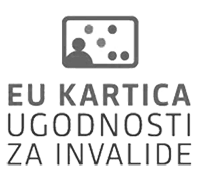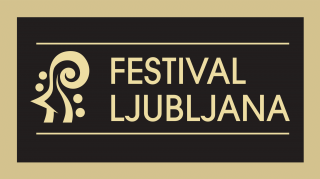Important information
INTERNATIONAL MUSICOLOGICAL SYMPOSIUM
Theme:
NEW MUSIC IN THE “NEW” EUROPE BETWEEN THE TWO WORLD WARS
Head of Symposium: Jernej Weiss
Open to the public
Saturday, 18 March
At 9.15 am
Welcome speeches:
Darko Brlek (Director and Artistic Director of Ljubljana Festival and President of the European Festivals Association)
Jernej Weiss (Head of the Musicological Symposium)
At 9.30 am
Keynote lecture
John Tyrrell (Cardiff): Janáček’s Maestoso: Reflections on From the House of the Dead (1928)
At 10.00 am
Chairman: Primož Kuret
Helmut Loos (Leipzig): Holy sobriety. Composer in the modern era. Continuity instead of discontinuity
Peter Andraschke (Giessen): Diversity of Modernism. Music days in Donaueschingen and Baden-Baden in the 1920s
Hartmut Krones (Vienna): Speaking and „Sprechgesang“ as a way of expressing socially critical message in the music between the world wars
At 11.30 am
Chairman: Danijela Špirić-Beard
Pauline Fairclough (Bristol): Leningrad in the European Mainstream, 1922-1941
Darja Koter (Ljubljana): The ideological and artistic identity of youth choirs between the wars
At 2.30 pm
Chairman: Ivan Florjanc
Danijela Špirić-Beard (Cardiff): Sounding Zenitism: Modernity, Balkanism and Josip Slavenski
Zdravko Drenjančević (Osijek): New approaches in music based on Slavonian melos among Croatian composers in the period between the two world wars
Monday, 20 March
Presentation of the sicientific results of the project “The Stylistic and Compositional-Technical Diversity of Slovenian Music from 1918 to the Present Day in the Light of Social Changes” (Slovenian Research Agency)
At 11.00 am
Chairman: Gregor Pompe
Jurij Snoj (Ljubljana): Essayistic writing on music in Slovenia between the two wars
At 11.30 am
Chairman: Jurij Snoj
Niall O’Loughlin (Loughborough): Slavko Osterc’s Compositional Journey and his Assimilation of New Techniques
Gregor Pompe (Ljubljana): Slavko Osterc and Lucijan Marija Škerjanc: aesthetic division and poetic brotherhood
At 2.30 pm
Chairman: Nada Bezić
Lubomír Spurný (Brno): Work and performance: A few comments on the Czech modern music
Jernej Weiss (Ljubljana–Maribor): Alois Hába and Slovene students of composition at the State Conservatory in Prague
Karmen Salmič Kovačič (Maribor): On the polystylistic nature of classicist modernism following the revelation of the “Adornian fallacy” ‒ in examples from the works of Demetrij Žebre
At 4.00 pm
Chairman: Jernej Weiss
Andrej Misson (Ljubljana): Some thoughts on Slovene choral composition between the world wars
Nada Bezić (Zagreb): “Intimate musical evenings” (1923–1926) or How the Croatian Musical Society in Zagreb opened the door to modernity
Katarina Bogunović Hočevar, Ana Vončina (Ljubljana): The first decade of Radio Ljubljana – the medium, the institution and its ideology in the light of music
Tuesday, 21 March
At 10.00 am
Chairman: Andrej Misson
Luba Kyyanovska (Lviv): Ukrainian Music in the Interwar Period of Twenty Years: Between Modernism and Socialist Realism
Ivan Florjanc (Ljubljana): The creativity of the composers of the Primorska region during the Italian Fascist occupation – compositional, stylistic and social insight
Sara Zupančič (Ljubljana): Kačji pastir – La Libellula: The musical multilingualism of Pavle Merkù’s opera


